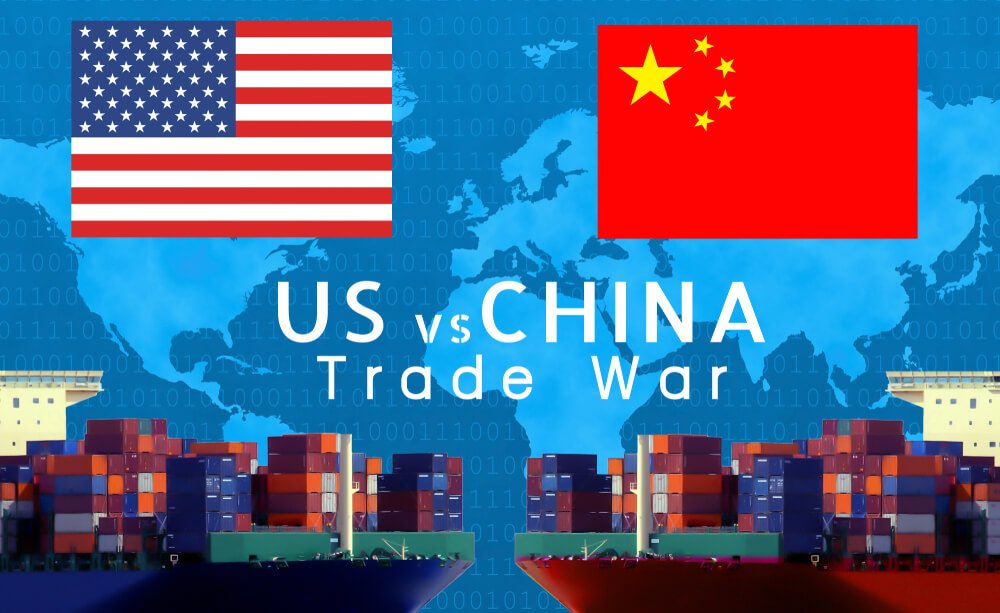With the trade war against the United States dragging on, Beijing is “rolling out the red carpet for the rest of the world” by dropping tariffs with other countries, particularly those exporting products that rival American exports, according to the Peterson Institute for International Economics.
Per PIIE’s research, China’s average rate of tariffs on U.S. goods rose from 8% at the start of 2018 to nearly 21% this month. The average tariff rates on imports from all other countries fell from 8% to 6.7% last November, where it has remained since then.
China’s move to lower tariffs on countries with rival products to the U.S. has largely gone unreported. But by lowering levies on other countries, it puts American companies at a “considerable” disadvantage while U.S. President Donald Trump is using tariffs as a negotiating stick, PIIE said.
“China has begun rolling out the red carpet for the rest of the world. Everyone else is enjoying much improved access to China’s 1.4 billion consumers,” PIIE wrote in its report, published on June 12. “Trump’s provocations and China’s two-pronged response mean American companies and workers now are at a considerable cost disadvantage relative to both Chinese firms and firms in third countries.”
The report also notes that inflicting punishment on American consumers and companies who are ultimately paying the price on Trump’s higher tariffs via higher prices for goods is the likely goal of China — effectively turning voters hit in their wallets against a president seeking a second term in a year and a half.
Lowering or dropping tariffs on non-U.S. imports also allows China the ability to limit damage to its economy, according to PIIE’s researchers, which include noted trade experts like Chad P. Brown, whose research examines international trade laws and institutions, trade negotiations and trade disputes.
Brown also has previously served as senior economist for international trade and investment in the White House on the Council of Economic Advisers, and as the lead economist at the World Bank.
The tariff fight began more than a year ago and mostly centers on the trade imbalance China holds over the U.S., in addition to forced tech transfer and IP theft Beijing regularly engages in. The tensions have rattled stock markets and threaten to derail the global economy if a deal isn’t reached.
Presidents Trump and Xi Jinping of China are scheduled to meet during the G-20 summit in Osaka, Japan, later this month.
However, raising tariffs on U.S. imports means Chinese firms and consumers will pay more for those goods, but now they have the option to switch away from American imports to those from others countries with the same products that are now cheaper (which Americans can of course do as well regarding Chinese imports).
“Tariffs are costly to the country imposing them, and China is no exception,” the report said. “Concern over such costs likely (explains) both China’s restrained retaliation against the United States and its decision to reduce tariffs toward the rest of the world.
“This is not good news for US exporters,” the report said, and that China by “reducing tariffs on imports from other countries means US exporters also face an increasing disadvantage relative to competitors in Canada, Japan, Europe, and elsewhere.”
Fewer goods have been exported to China over the past year, PIIE said, while China’s overall imports have fallen as its economy has slowed. However, the country’s importing of American goods has declined much more rapidly.
One particular area where the U.S. has lost out is seafood. Exports of lobsters to China have fallen a staggering 70% after it raised tariffs to 25% in July of 2018, while Canada’s lobster exports have doubled after Beijing cut tariffs on those.
“This is just one more good reason why trade wars are not easy to win,” the report said.
Editor’s note: Has Trump underestimated how difficult it is to win a trade war (if anyone really wins), or does he have China right where he wants it? Share you thoughts below.
